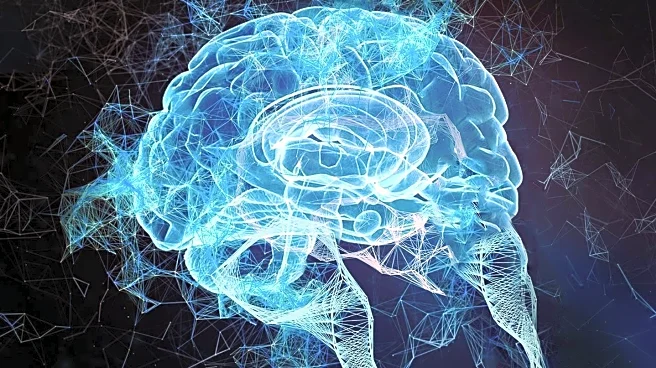What is the story about?
What's Happening?
Recent research has uncovered a potential early indicator of Alzheimer's disease through the loss of smell. Scientists at DZNE and Ludwig-Maximilians-Universität München have found that microglia, immune cells in the brain, mistakenly remove nerve fibers connecting the locus coeruleus and olfactory bulb, which are crucial for processing odors. This immune-driven pruning occurs when hyperactive neurons display altered membranes, marking them as defective. The study, published in Nature Communications, suggests that these olfactory dysfunctions arise due to changes in the nerve fibers linking the locus coeruleus to the olfactory bulb, signaling to microglia that affected fibers are defective or superfluous.
Why It's Important?
The findings could pave the way for earlier diagnosis and treatment of Alzheimer's disease. By identifying smell loss as a potential diagnostic tool, healthcare providers may be able to intervene before cognitive symptoms manifest. This could allow for the earlier use of amyloid-beta antibody treatments, potentially increasing the probability of a positive response. The research highlights the importance of understanding the immunological mechanisms behind Alzheimer's, which could lead to more effective strategies for managing the disease.
What's Next?
The study suggests that early identification of patients at risk of developing Alzheimer's could enable comprehensive testing to confirm the diagnosis before cognitive problems arise. This would allow for timely therapeutic intervention, potentially improving outcomes for patients. Further research may focus on refining diagnostic tools and exploring additional therapeutic options based on these findings.
Beyond the Headlines
The research underscores the complex interplay between immune responses and neurological health, highlighting the need for a deeper understanding of how immune cells like microglia contribute to neurodegenerative diseases. This could lead to broader implications for treating other conditions where immune misfires play a role.















